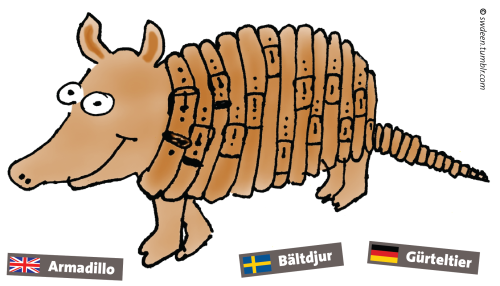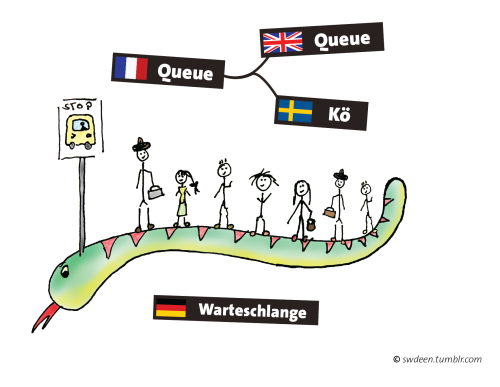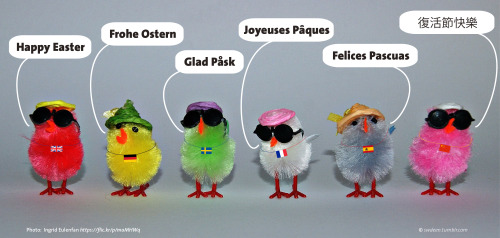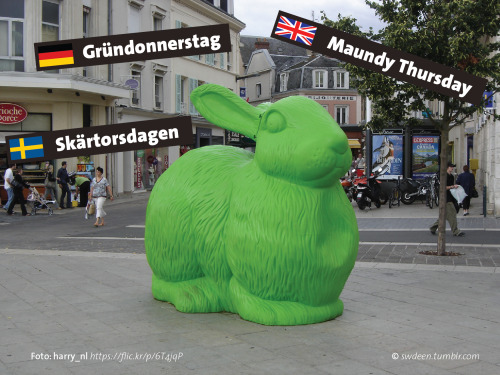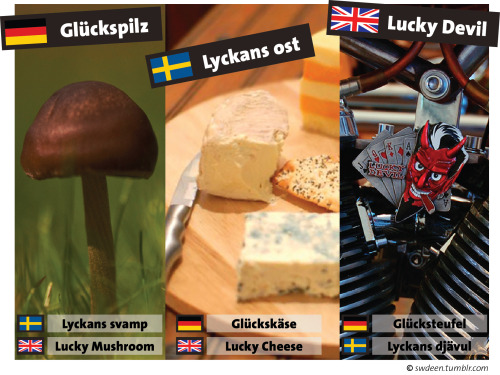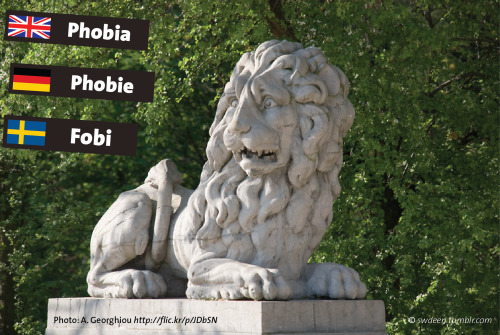#english
Unfortunately, that was very Ernest Hemmingway of you.
Lmaooo my english proff. was giving examples of divisions/groups of people (like christians, New Englanders, or people who think Tom Brady is great) and he goes “Oh wait, Tom Brady isn’t great anymore right?” And a kid puts two middle fingers up to the cameras and the proff sees it and goes while smiling"yeah Tom Brady used to be great but he isn’t anymore. It’s confusing"
What’s a »beltanimal«?
Seriously—the Germans and the Swedes call the armadillo beltanimal? (S: bältdjur / G: Gürteltier).
How come? Just take a look at this special animal! The movable ribbons that form the armature give the animal its name. It is a common name—not used by science.
The English name »armadillo« derives from Spanish and means »little armoured one«.
Post link
Swedes call their vegetables literally »green things« or »green stuff«!
If you think a little while about the word description—why not? Is there any characteristic that fits better to describe this group?
The German language calls vegetables »Gemüse«, it derives from the old Germanic word »muos« (food, victuals, porridge). Even Müsli has the same root. Sometimes Germans call their vegetables »green things« but only to show that they don’t appreciate this sort of food much.
And where does the word »vegetables« come from?
From the Latin »vegetabilis«. It means »capable of life or growth«.
Post link
Two weeks ago, the German soccer team won the World Cup. Probably one of the biggest sport goals a German citizen can think of.
While the championship took place, there were big public screening events in larger cities all over Germany. These events are called »Public Viewing« and they are defined by watching soccer on large screens with many other people. But do the Germans know that »public viewing« in American English describes the lying in repose? Germans would probably not expect the presentation of a corpse when invited to a public viewing in America.
As often the Germans like to establish English terms for new inventions or concepts. Probably it’s the wish to appear cosmopolitan? Anyway, the term was established in 2006, when Germany hosted the World Cup. As you all know, Germany is much into soccer, so that the tickets for the matches where sold out seconds after being brought on the market. However, the committee that planned the events for the FIFA established the idea to host a big »Fanmeile« (=fan fest) where people could gather and watch the matches together on large screens—so that they would get a sort of stadium-like feeling. That should compensate for the problem that only a relatively small group of people received a ticket to watch a match in the stadium.
Unfortunately, no one knows who established the word »Public Viewing« in the first place.
A radio station in North Rhine-Westphalia, that didn’t like the wrongly used English term, asked their listeners to be creative and find an appropriate German expression. The listeners voted for »Rudelgucken« which literally means »watching in a pack« as the best of the suggestions. However, the term never got as famous as the term pushed by the FIFA.
The biggest Public Viewing event in Germany takes place in front of the Brandenburg Gate on the Straße des 17. Juni. After the team won the Cup two weeks ago, the team flew directly from Rio to Berlin to celebrate their victory with all the fans. Probably you’ve seen some pictures?
Post link
There is a nice French word for standing in line waiting for something: »queue«. In the French origin it means »tail« and in the past it would even describe a »penis« (12th century). It derives from the Latin dialectal word »coda« which means »tail«, too.
»Queue« is a cool example on how the Germanic languages adapt loan words into their own system.
- TheEnglish language adapted the complete word without changing the spelling, BUT totally changing the pronunciation.
- TheSwedish language adapted the complete word as well, though it doesn’t look like the origin. To maintain the French pronunciation, they changed the spelling.
- TheGerman expression for »the line you stand in waiting« is »Warteschlange« and literally translated means »waiting snake«. There is no verb in the German language like in English »to queue« or in Swedish »att köa«. In German you have to say you »stand in snake« or »wait in snake«. But Germans also know the word »queue«, it is a »billiard cue«.
Trivia:
Did you know that queueing is not normal at a bus stop in Germany? While the first person that arrives at a bus stop in Sweden or in England establishes the queue, there is no similar behavior in Germany. When a bus arrives at a stop, all people run towards the entrance, irrespective of the order of appearance at the stop. The Germans have a very cool name for the picture that establishes, when everybody runs towards the door. They call it »human bunch of grapes« (Menschentraube = knot of people).
Pronunciation for Queue in French,Queue in English,Kö in Swedish,Billard Queue in German,Warteschlange in German und Menschentraube.
Ref.: http://www.etymonline.com/index.php?term=queue
Post link
Once again: Swedish can be so easy!
When you write a formal letter »to whom it may concern«, in German you have to address it to »Sehr geehrte Damen und Herren« which literally means »very honored ladies and gentlemen«.
In Swedish there are some more possibilities, but very easy rules. If you write a formal letter to an unknown woman you should write to »Bästa fru« or to an unknown man »Bäste herrn«—just like the English »Dear Madam« or »Dear Sir«. The gender-neutral version is »Bäste herr eller fru«—again like »Dear Sir or Madam« in English. However, this salutation is not so common in Sweden due to the very informal use of language. Since the abolishment of most polite forms in the 60’s, you can just write: »Hej!«
There is one exception if you want to send your formal letter to the king or queen. In this case, only »Eders Majestät« (»Your Majesty«) is correct in Sweden, while a letter to The Queen should should open with »Madam«.
Phrases for formal letters (German, Swedish): http://de.bab.la/phrasen/geschaeftlich/bab.la-phrasen-brief-deutsch-schwedisch.pdf
How to address the Swedish king: http://blogg.vett-och-etikett.com/kungligt-hur-inleds-ett-brev-till-till-kungen/
How to address The Queen: http://www.royal.gov.uk/hmthequeen/contactthequeen/overview.aspx
Photo: William Arthur Fine Stationery https://flic.kr/p/8513JQ
Post link
»Easter« has its roots in the Latin »Pascha« and Hebrew »Pesah« and is the celebration period of the resurrection of Jesus.
While the Swedish, French and Spanish word for Easter are clearly referring to the origin in the Latin and Hebrew root, the German and English words trace back to a different origin.
There are several theories that can be found and—as so often—no one can tell which theory is the right one.
- It could derive from the old Germanic word »Austro« which stands for a »red dawn/aurora«. This bright red light has a symbolic meaning because the empty grave of Jesus has been found and in this theory »Easter« is a symbol of the resurrection.
- Another theory is that »Easter« describes the direction »East« (Germ.: Ost), where the dawn takes place. Many Christians were baptized during dawn on Easter morning. This ceremony was called »Ostaurn«.
- A common but probably false explanation is that the »Ostern« and »Easter« celebration replaced a pagan spring tradition in honor of the Anglo-Saxon goddess Ostara.
Here you can learn the pronunciation of the examples in the pic:
Happy Easter (English),Frohe Ostern (German),Glad Påsk (Swedish),Joyeuses Pâques (French),Felices Pascuas (Spanish)
The Local has collected nine traditions how the Germans celebrate Easter.
Ref.: http://pagewizz.com/frohe-ostern-in-allen-sprachen/
Photo: Ingrid Eulenfan https://flic.kr/p/maMHWq
Post link
Today is »Maundy Thursday«. In German it is called »Gründonnerstag« (literally: »Green Thursday«) and the Swedish name for the fifth day in the Holy Week is »Skärtorsdagen« (lit.: »The Clean Thursday«).
Where does the differences come from?
The English term »Maundy« derives from the Latin word »Mandatum« and is a religious rite where one washes the feet of someone. This rite is described in the Bible by several disciples who observed Jesus washing the feet of the twelve apostles before the Last Supper.
The Swedish word »skär« is an old nordic term and has been used to describe something as »clean, nice, white«. The origin is the same as in English.
How come, the German call the day »Green Thursday«?
There are several explanations that can be found—unfortunately no one can say what the correct one is.
- Today is the day where the sinners get their sins freed by the church. The Bible describes this rite metaphoric as a part to recover as »green wood«. For this occasion members of the church wore white dresses often with green ribbons.
- Another explanation is, that there is still the period of fasting and that the Christians eat especially green food like vegetables, green cabbage and salad. Furthermore it has been the day where the spring often begins and the people tilled their fields.
- A third explanation is that »grün« does not really describe the color green but rather derives from »greinen« which means crying and refers to being sad because of Jesus’ coming death.
Photo: harry_nl: https://flic.kr/p/6T4jqP
Post link
An airbag is a very palpable description for the life-saver inside a vehicle. Airbags are—of course—bags inflating within milliseconds after crashing into something. The most common airbag can be found in the front seats of cars and has the function to protect the head from an impact.
»Airbag« is a loan word in German that is used in everyday speech. It is interesting to note, that the invention can be traced back to Germany. Mr. Walter Lindener ranks as the inventor with his patent registered in 1951 in Munich. However, the name »airbag« came much later. In 1974 GM released cars with »Air Cushion Restrain Systems«. In the 80’s and 90’s the airbag systems became more common and as did the name »airbag«. Not only in English speaking countries but also in Germany.
Although German has its own words to describe the function of an airbag, they were never really used. Ask a native-speaker how »Luftsack« or »Prallkissen« sounds to him/her and you will often hear answers like ridiculous.
In comparison to German the Swedish language used its own word. In Swedish the airbag it is called »krockkudde« and is a two noun word consisting of the word »krock« for »collision« and »kudde« for »cushion/pillow«.
Photo:
Jørgen Schyberg https://flic.kr/p/7LdWQ
Idea:
Evasundine1 https://twitter.com/evasundin1/statuses/451256048150904832
Post link
Three different phrases which always have the same meaning: A person who is lucky in something, whether the persons deserves it or not.
How did that come about?
The German word »Glückspilz« (Lucky Mushroom) is rooted in the growing of mushrooms. When mushrooms appear, they appear frequently and grow fast. Before the 19th Century the meaning of »Glückspilz« had a negative connotation and meant people that mushroomed very fast. These very fast growing people brought it to money and wealth fast.
The Swedish pendant to German mushrooms is a cheese. That is because in Sweden a brainless person was called »cheese« (»Ost«) in earlier times. If this person nevertheless was lucky without actively pursuing their luck, they were called »lucky cheese«.
The English pendant to the mushroom and cheese is no-one less than the »devil«. As in the German and Swedish examples it emphasizes the fact, that someone is lucky in a situation, whether the one deserves it or not. The abusive term »devil« is used because in earlier times people thought that one must have made a pact with the devil.
Photos:
- Mushroom: J. Ramsden https://flic.kr/p/a7jyie
- Cheese: ulterior epicure https://flic.kr/p/A7ZBb
- Devil: C. Lorenzo https://flic.kr/p/54Pyhx
References:
- http://en.wiktionary.org/wiki/devil’s_luck
- http://de.wiktionary.org/wiki/lyckans_ost#lyckans_ost_.28Schwedisch.29
- http://de.wiktionary.org/wiki/Glückspilz
There are a few more expressions with the same meaning:
Lucky dog, lucky child or even lucky bastard.
Do you have other examples?
Post link
Discover the differences and similarities between the three languages.
To find out more about loan words written with »ph«, see my former posts like philosophy,phobiaandphysics.
Thanks for contributing some words adaldag =)
Do you have further words?
Post link
Another great example how the Swedish language deals with loan words with a »ph« from Ancient Greek. »Physics« means »knowledge of nature«.
For further examples check the last posts.
Do you find more?
Post link
After I explained yesterday the different ways of adapting loan words to the Swedish language here is another funny example of a word rooted in Ancient Greek. »Phobia« means »fear« or »anxiety«.
Yesterday’s example: filosofi.
Photo: A. Georghiou http://flic.kr/p/JDbSN
Are there more examples?
Post link
Once again: Swedish can be very easy.
The English word »philosophy« has it’s roots in the Greek and Latin word »Philosophia« (philo-meansloving, sophia means wisdom). It expresses »the love for knowledge and the pursuit of wisdom«.
So, »philosophy« is a loan word for the three Germanic languages. In German »Philosophie« is completely the same spelling like the French version that adapted it first. This can often be observed when it comes to loan words in the German language. They try avoiding the adaptation of words into their writing and spelling system.
In comparison to German, the Swedish language has a different approach when it comes to loan words. They adjust almost every loan word to their own writing and spelling system. By observing the example »philosophy« that means that first the »ph« can be replaced with a simple »f«. Secondly, the »e« in the ending of the French »philosophie« can be economized because it is not necessary for pronunciation. In the end »philosophie« becomes »filosofi« in the Swedish language.
Here you can listen to »filosofi« and »Philosophie« (German/French).
Photo: wortmeer: http://flic.kr/p/62CWjU
References:http://www.etymonline.com/index.php?term=philosophy
Here you can see another example: »Ingenjör«.
Do you have more examples?
Post link
Ein Teddybär ist ein Kuscheltier, dessen Namenspatron Theodore »Teddy« Roosevelt ist. Als der damalige Präsident der USA 1902 auf Bärenjagd in Mississippi war und sich keine Gelegenheit bot, einen Bären zu erlegen, bot man ihm an, ein angeleintes Bärenbaby zu erschießen. Dies lehnte Theodore Roosevelt ab. Ein anwesender Karikaturist der Washington Post hielt die Szene in einem Bild fest und so wurde der Bär zum Symbol des Präsidenten.
Ein russischer Einwanderer in Brooklyn warb daraufhin mit einem Stoffbären »Teddy’s bear« im Schaufenster seines Ladens.
Parallel zu dieser Geschichte gibt es noch ein deutsches Pendant, das das Steiff-Museum erzählt. Über den Sekretär von Theodor Roosevelt kam seine Tochter an einen Stoffbären, der von Margarete Steiff hergestellt wurde. Da die Tochter großen Gefallen am Bären fand, benannte sie ihn nach ihrem Vater »Teddy«. 1903 bestellte ein amerikanischer Händler 3.000 Teddybären bei der Firma Steiff.
Zur Wortherkunft von Bär, Bear, Björn:
Es gibt verschiedene Ansätze, jedoch gilt als am wahrscheinlichsten die Theorie, dass »Bär« auf die Farbe »Braun« zurückzuführen sei.
Im Schwedischen hat der Teddybär auch noch einen weiteren gängigen Namen. »Nallebjörn« oder schlicht »Nalle«, was eventuell aus dem finnischen »Nalli« entlehnt wurde.
Teddybjörnen Fredriksson ist ein bekanntes Kinderlied in Schweden. Schaut es euch hier bei »Lotta på Liseberg« an: http://www.youtube.com/watch?v=yNYnwfl6ABE
Foto:
Terence Hill: http://flic.kr/p/7T8VrV
Quellen:
http://de.wikipedia.org/wiki/Teddybär
http://en.wikipedia.org/wiki/Teddy_bear
http://en.wikipedia.org/wiki/Nalle
Post link




